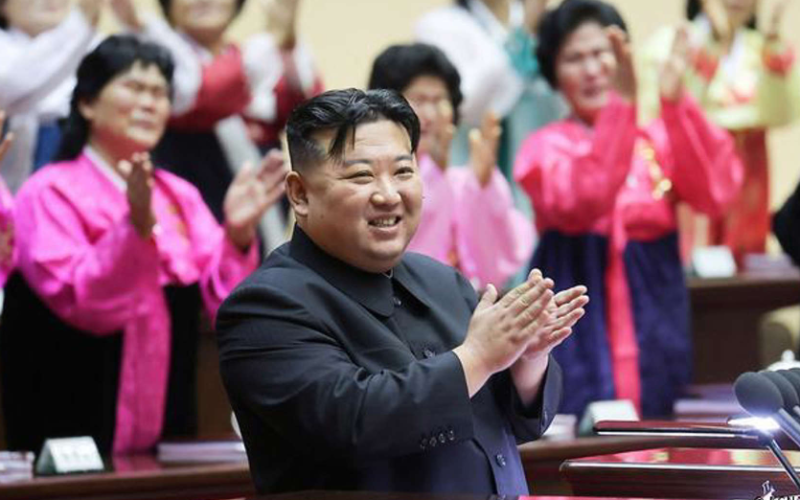North Korean leader Kim Jong Un has emphasized the need to address the country’s declining birth rates, describing it as a collective responsibility during an event for mothers in Pyongyang. Kim highlighted the importance of preventing a further decline in birth rates and ensuring proper childcare, characterizing these challenges as “everyone’s housekeeping duties.”
According to the United Nations Population Fund, North Korea’s fertility rate, representing the average number of children born to a woman, stood at 1.8 as of 2023. This figure reflects a prolonged decrease in the fertility rate over the past decades. Despite the decline, North Korea’s fertility rate remains comparatively higher than that of some neighboring countries facing similar demographic challenges.
South Korea, for instance, experienced a record-low fertility rate of 0.78 last year, contributing to a shortage of pediatricians and prompting innovative measures such as matchmaking events to boost birth rates. In Japan, the fertility rate dropped to 1.26.
The demographic issue in North Korea adds to the complexities the country faces, including historical challenges like food shortages and famine, particularly during the 1990s. Natural disasters, such as floods damaging harvests, have contributed to these difficulties.
Addressing mothers at the event, Kim expressed gratitude for their role in strengthening national power, acknowledging the challenges they face. Kim’s call for collective efforts to tackle falling birth rates underscores the significance of demographic stability in North Korea’s broader socio-economic context. As the nation grapples with demographic shifts, Kim’s remarks reflect a recognition of the multifaceted nature of the challenges and the need for comprehensive solutions to ensure a stable and thriving population.








